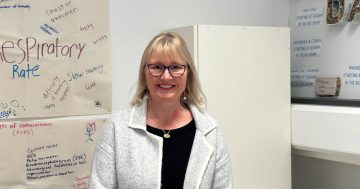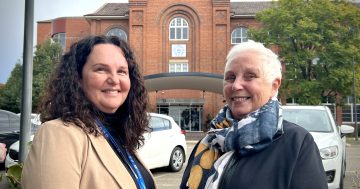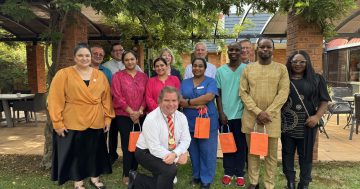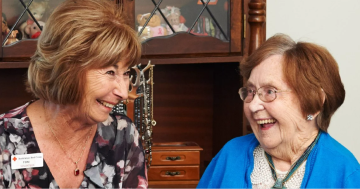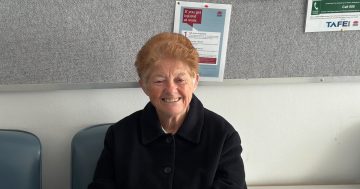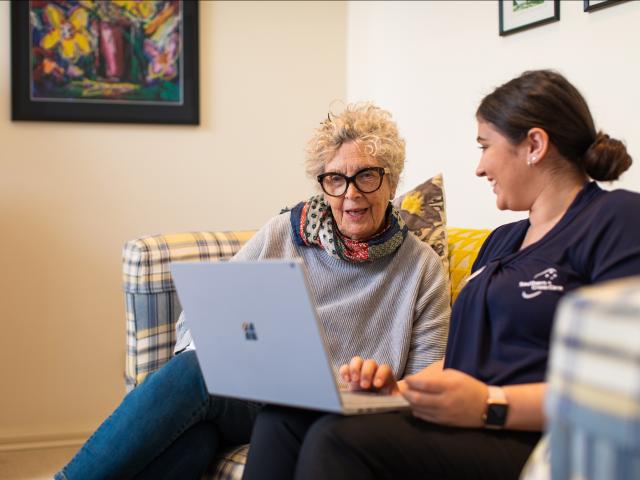
Southern Cross Care has called for locals to consider a career in aged care. Photo: Supplied.
A leading operator of residential aged care homes in the ACT and the Riverina has sent out an SOS to locals in the hope of recruiting desperately needed workers.
“We decided to put out a call for help to the community because our traditional ways of recruiting, such as online job advertisements, are not attracting staff,” explains Gaynor Squillacioti, chief operating officer at not-for-profit Southern Cross Care.
She says they are experiencing an acute workforce shortage in regional and remote areas including Moama, Corowa, Deniliquin and Lavington.
“In order to find a safe and sustainable solution for our community regional sites, we do need to look at some untapped reserves,” Ms Squillacioti says.
“What we’re hoping for is that this push will encourage people who’ve never thought of starting an aged care career to rethink and we’re trying to highlight the great opportunities within aged care and also the rewarding role that it can play.”
One of the challenges for care providers in remote areas is the growing number of working-age people heading for the cities.
“Some areas tend to be a more aged demographic where the teenagers or the younger adults have moved from that local area,” Ms Squillacioti explains.
“That gap in the potential workforce means that we may not only be competing with other aged care providers, but we’re competing with retail, we’re competing with hospitality and with farming.
“Some of those roles are able to pay more than what we can in aged care because we’re government funded.”
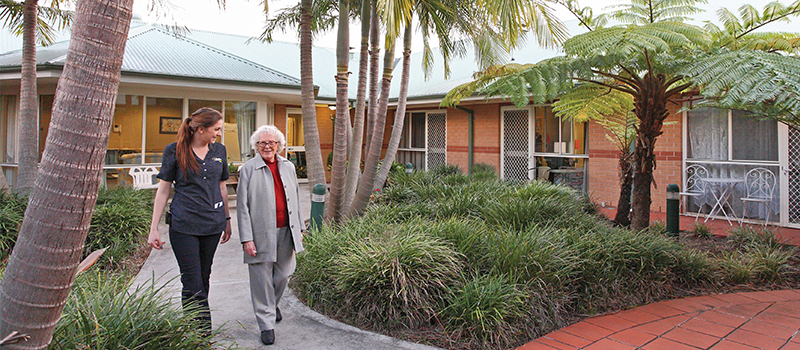
Local staff help retain community connections. Photo: Supplied.
Ms Squillacioti is hopeful that locals will take a look at the additional benefits a not-for-profit can offer and recognise the chance to serve their community in a uniquely important way.
“People tend to think aged care is all about providing personal care and having a few games of bingo, but that is not contemporary aged care,” she says, outlining the diverse opportunities in the sector.
“When people feel engaged with their community and with each other and they participate in meaningful activities, they’re given a sense of purpose.
“We structure engagement based on prior life experiences, individual hobbies and interests, that can have a massive impact on not only the resident’s mental health and wellbeing but also has a cascade effect on their physical health.”
Employing local staff has added benefits for residents, carers and communities.
“It ensures the residents still retain that community connection because some of the staff come into the nursing homes and they remember our residents as being their teachers, the local butcher or the local shop owner,” she says.
“So it brings a whole across the board community connection and we know that by engaging our local community, everyone benefits.”
Ms Squillacioti describes ageing as a “great privilege because the alternative is to have died young”, and hopes regional communities will answer the call.
“Our mission is to ensure residents live the best life they can and to deliver we need more staff and more volunteers.
“This is the community’s chance to extend the relationship and contribute to the workforce shortages experienced in many regional towns.”








